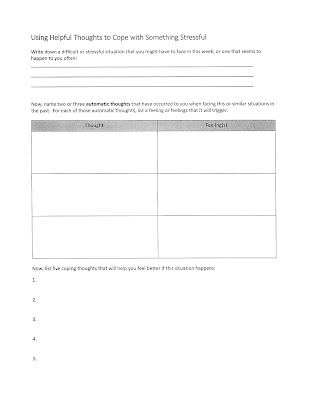The Healthy Relationships Workbook (for people with learning
difficulties) is a free series of worksheets and activities designed to help individuals
with a developmental or intellectual disability learn about healthy
relationships, as well as what constitutes an abusive relationship and what to
do in such a case. The workbook uses simplistic language for people with IDD (people
with developmental or intellectual disabilities) and contains at least one
subject per page, which also include large black and white illustrations that
can be used for coloring. Allowing participants to color during these
activities can increase reader connection to the material. This workbook is
most effective when participants use the workbook with a trusted adult, in the
case that any questions arise.
I found
this workbook to be a practical example because I have several students with
IDD and many of them are finally at the age where they are becoming sexually
curious. Addressing these concerns can be a bit more challenging for students
with IDD because they might have difficulty in comprehending certain themes,
due to their lack of social and intellectual development. The Healthy
Relationships Workbook provides students with IDD the opportunity to learn
about healthy relationships in a comfortable environment with practical information
that is easy to understand and provides them with insightful resources that they can
use in their everyday lives.
Here is the link to the full workbook (and it's free!)




